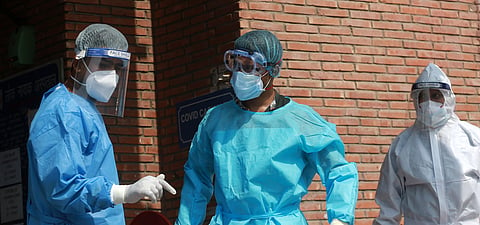

NEW DELHI: India will have its own COVID-19 genome data bank with the Institute of Genomics and Integrative Biology (IGIB) pooling all 600 Indian genomes for researchers to understand the genomic variants of the variants and their properties.
This can give insights into developing better and efficient diagnostics as well as vaccines against the virus.
The IGIB has proposed a collaborative resource IndiCoV, an open data source, to ensure that the genome data is appropriately organised and annotated to researchers so they can make best use of it.
Over 600 genomes of clinical isolates are currently available in the public domain from India, covering over 21 states and Union territories and deposited by 19 laboratories and institutions across the country.
According to Vinod Scaria, Genomics Scientist, IGIB, one of the approaches where scientists have come together to understand the epidemiology of the Covid-19 is through genome sequencing of the pathogen.
Closely following the outbreak in Wuhan, researchers from China shared the high quality genome sequence of the virus, now popularly known as the Wuhan Hu 1 isolate and widely considered as the reference genome.
“The availability of genomes also opens up new challenges and opportunities for researchers in the country and across the world, the major challenge being able to make sense of the genomic data available to provide interesting insights into the epidemiology and evolution of the virus. Additionally, the genomic sequence can provide us interesting insights into the dynamics of the epidemic and potentially allows for molecular contact tracing,” he said.